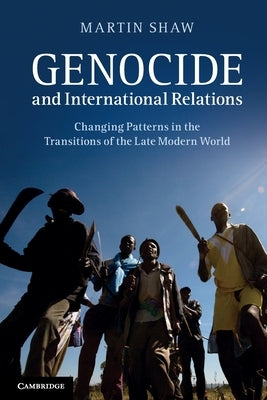Cambridge University Press
Genocide and International Relations: Changing Patterns in the Transitions of the Late Modern World
Genocide and International Relations: Changing Patterns in the Transitions of the Late Modern World
Couldn't load pickup availability
Author: Martin Shaw
Publisher: Cambridge University Press
Published: 09/19/2013
Pages: 246
Binding Type: Paperback
Weight: 0.80lbs
Size: 8.90h x 6.00w x 0.60d
ISBN: 9780521125178
About the Author
Shaw, Martin: - Martin Shaw is a historical sociologist specialising in global politics, war and genocide. He is Research Professor of International Relations at the Institut Barcelona d'Estudis Internacionals, Professorial Fellow in International Relations and Human Rights at Roehampton University, London, and Emeritus Professor of Sussex University. Shaw's books What is Genocide? (2007) and War and Genocide: Organized Killing in Modern Society (2003) have established him as a major authority in the genocide field. He is the author of several books on war, most recently The New Western Way of War: Risk-Transfer War and Its Crisis in Iraq (2005) and Civil Society and Media in Global Crises: Representing Distant Violence (1996), and on global change, notably Theory of the Global State: Globality as Unfinished Revolution (Cambridge University Press, 2000). His website is martinshaw.org.
Share


